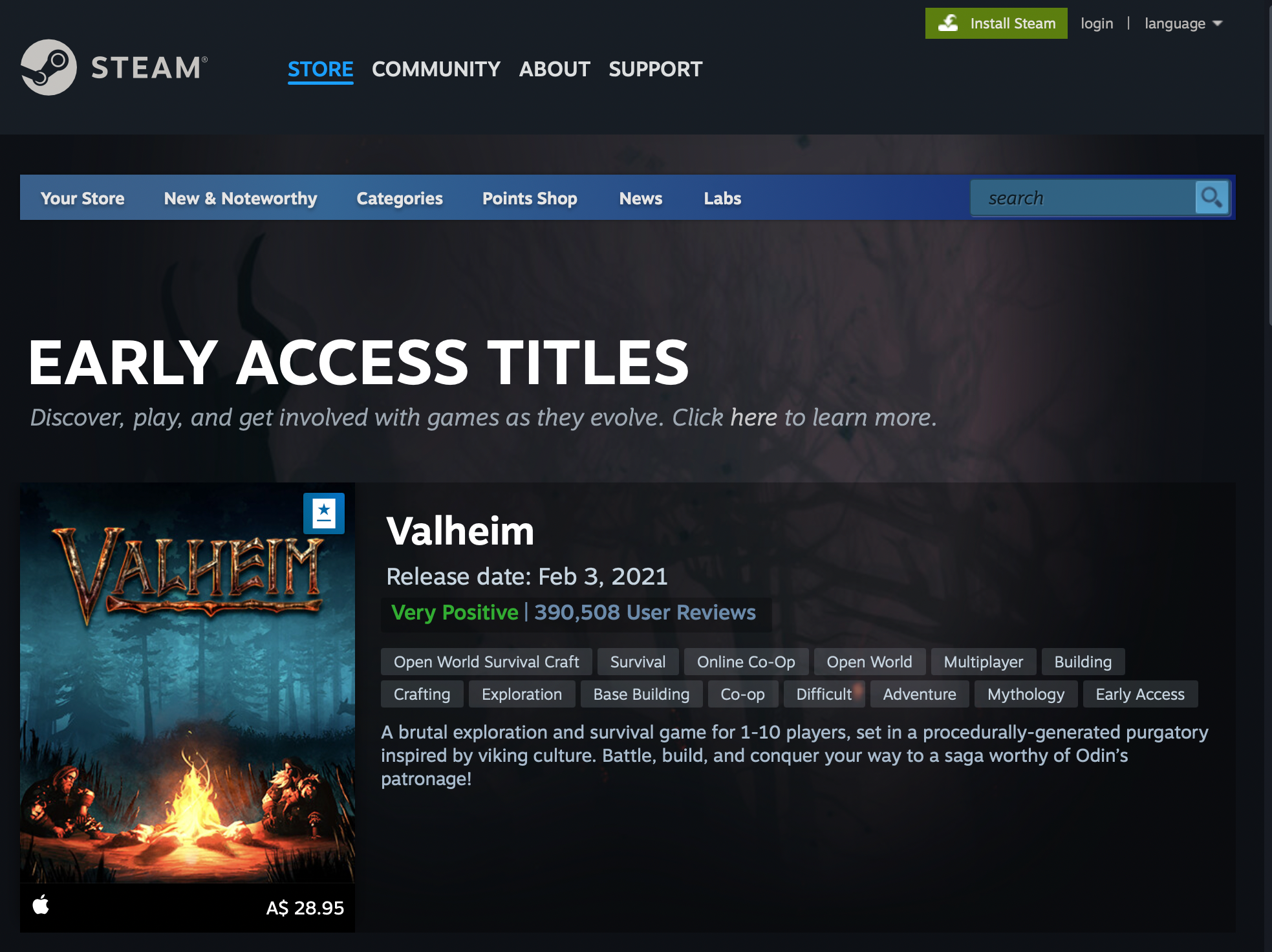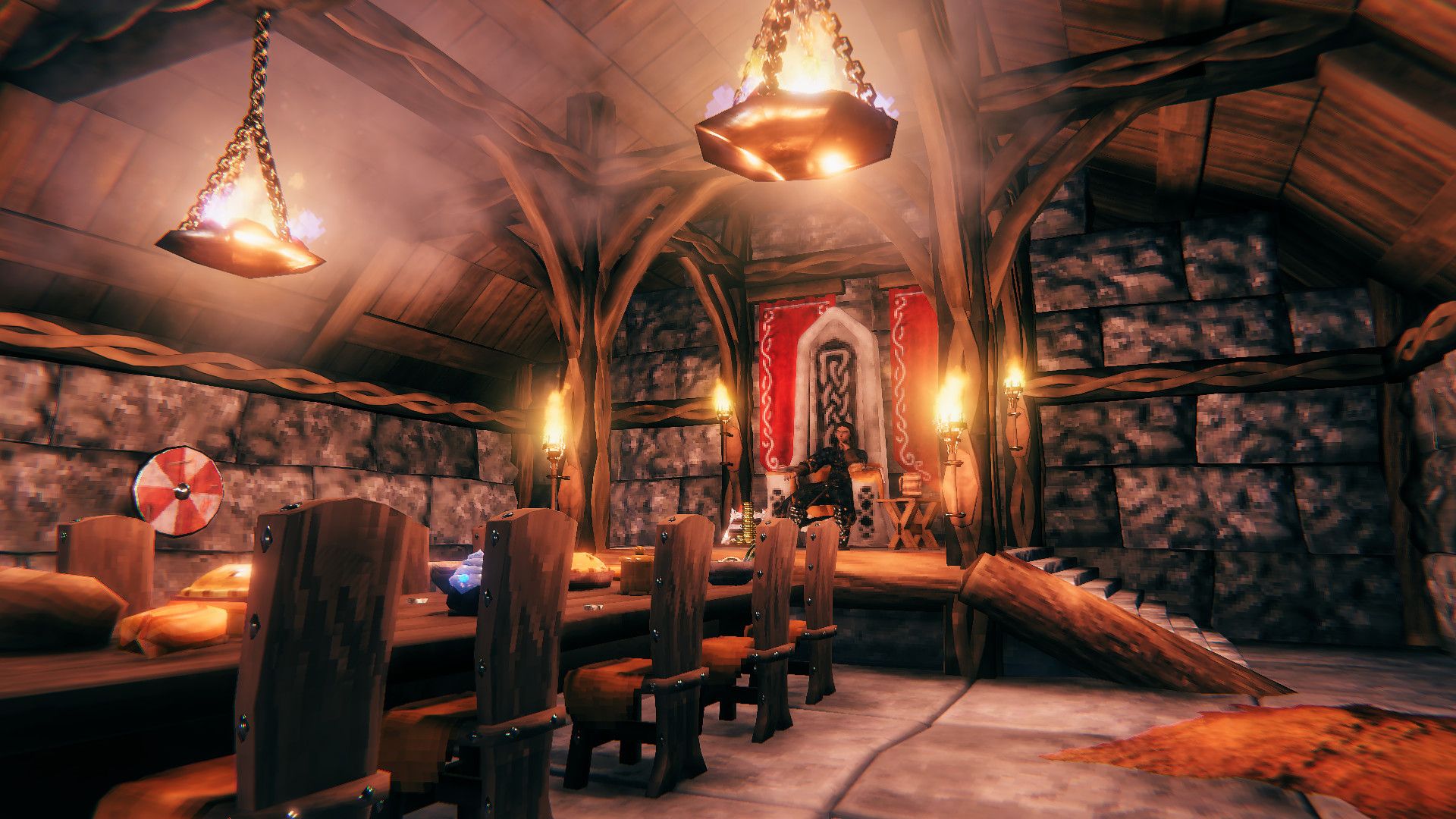Key Takeaways
- Early Access games support developers and the games they’re working on, while costing less money than a finished retail release.
- Playing games during the Early Access period can be tempting, but it’s often worth waiting to experience a game for the first time in a polished state.
- You might want to make allowances for Early Access games that become viral hits and others that never seem to leave Early Access due to ongoing development.
Many games now start life as early access titles, where players can choose to fund development in exchange for pre-release builds. The model has been wildly successful for many smaller studios, but it’s not without its drawbacks for gamers.
Games in Early Access Need Your Support
Buying a game in early access lets you support a developer and fund ongoing development. This is a lifeline for many smaller indie teams, for whom development budgets can be tight. Deciding whether you should back a project can be tough but rewarding.
It can also be a blessing for the game, giving the developer more time to work on the title before moving ahead with a rushed 1.0 release. Your money could be going towards development costs like hiring voice actors, commissioning music, funding QA, or broadening the scope of the game in question. You might simply be helping a developer afford basics like rent and food.
Steam treats Early Access titles like any other, which means you can review and refund games just as you would a full-priced release. Use these reviews to find titles you might enjoy, support those you love, and warn others about those that fall short of the mark. As long as you clock in under two hours of gameplay, you can request a refund.
The Epic Game Store and GOG both have similar programs, while itch.io has been dealing in unfinished, experimental titles since its inception. Microsoft now permits “Game Preview” titles on its Xbox storefront, with games like Palworld and Grounded even coming to Game Pass free of charge.
Most games that are launched in a pre-release state are cheaper than retail price, sometimes considerably so. This allows you to save money and feel good about supporting a project you’re looking forward to playing. It’s especially compelling when you know you’re going to love the end result, as is the case with follow-ups to popular titles like Hades II and games that receive widespread praise like Vampire Survivors.
Some developers even go the extra mile and offer additional bonuses to their early access supporters. You may be able to shape a game by providing feedback, or you might get a shout in the credits. Regardless, you get to know you helped support a project that’s ready and waiting for you when the final release rolls around.
Early Access Games Are Good, Finished Games Are Better
For all the good that supporting Early Access titles can do, there’s a good argument for not playing that early build of that game you just bought. You can only play a game for the first time once, and the best time to experience something for the first time is when it’s in a finished state.
Ironically, this is true of many retail releases that don’t launch in Early Access. Just look at games like No Man’s Sky and Cyberpunk: 2077. Both are now worthy of your time, but neither was particularly compelling at launch. Both have improved considerably and if you held off on playing them during their rocky beginnings, your first playthrough will be all the better for it.
But you’d be forgiven for assuming that “finished” games are, in fact, finished. There is no such expectation with an Early Access title. You are buying a rough first draft, one that likely has missing features, levels, and assets. That’s to say nothing of the bugs, balance issues, and optimization.
An article published on Kotaku titled “Why I Won’t Be Playing Hades 2 In Early Access” perfectly sums up the problem. While a game can be compelling in Early Access, it’s almost always going to be better when it sees a final release.
By pouring hours into a title before it’s finished, you’re potentially spoiling story beats, game mechanics, secrets, boss battles, and the charm of experiencing a game for the first time. By the time the 1.0 release rolls around, you might be burned out, sick of the music, and unchallenged by the gameplay. You’re sacrificing the best possible experience for an early taste.
I made this mistake with Vampire Survivors, a game that I played to death in early access and then spent two years trying to convince my partner to play. The version I eventually watched them play on the Xbox was everything I enjoyed and more. The improved balance and masses of additional content made progression feel far more meaningful.
Vampire Survivors is still appealing and infinitely replayable, but I’d have loved to experience the best version of that game the first time I played it.
Viral Early Access Games and Perpetual Development
You may be tempted to make some exceptions to this rule, and Vampire Survivors is a good example. While most Early Access games are lucky to gather a small following of dedicated fans, others hit it big. This was the case with multiplayer titles like Valheim and Phasmophobia, both of which were huge hits with streamers.
If you’re the sort of person who likes to be a part of the conversation around the freshest games, it’s going to be hard not to dive in. You could treat the buzz generated by a new Early Access hit as a sign that the game will get better in time, or you could limit yourself to the first 30 minutes of a game (enough to know that you won’t be refunding it).
Other games seem to never leave Early Access. This is true of titles that are always evolving and broad in scope. A good example of this is BeamNG.drive, a soft-body physics simulator that has been in development for around a decade. Satisfactory is another cherished title that first started development in 2016, and still wears the Early Access badge.
These are two examples of projects where developers have been honest about their intentions and desire for feedback as development continues. These are slow-burners, so the argument against playing them isn’t as strong as titles with shorter Early Access intentions like Hades II.
Don’t Be Afraid to Support the Games You Love
The argument against playing Early Access games is far stronger than the argument against buying them. Supporting small teams and funding development is good, just be careful before you rob yourself of the impactful experience of playing a great game for the first time.
While you’re waiting for your Early Access fruits to bloom, why not work on clearing your backlog instead?






